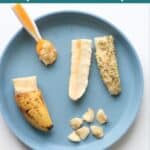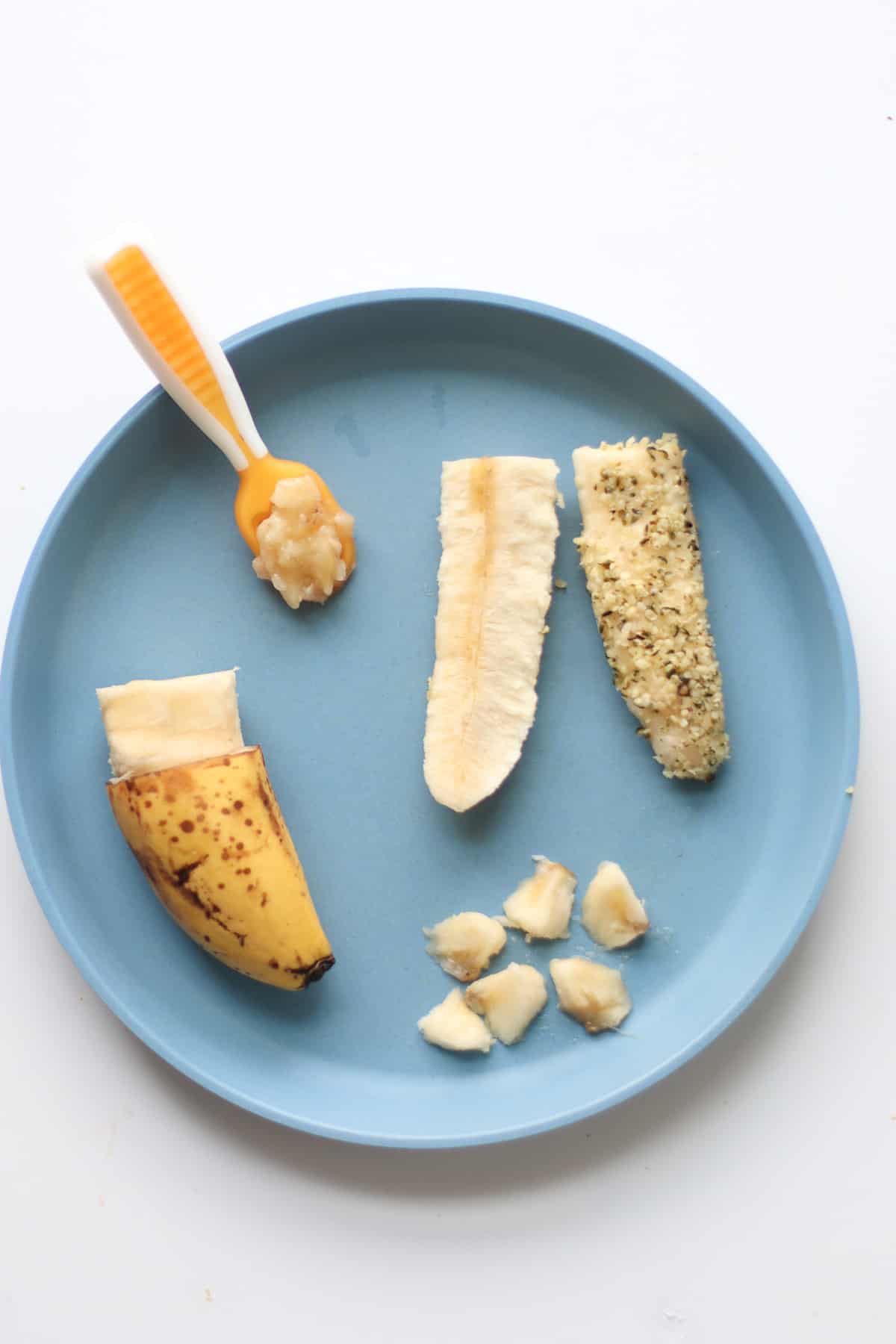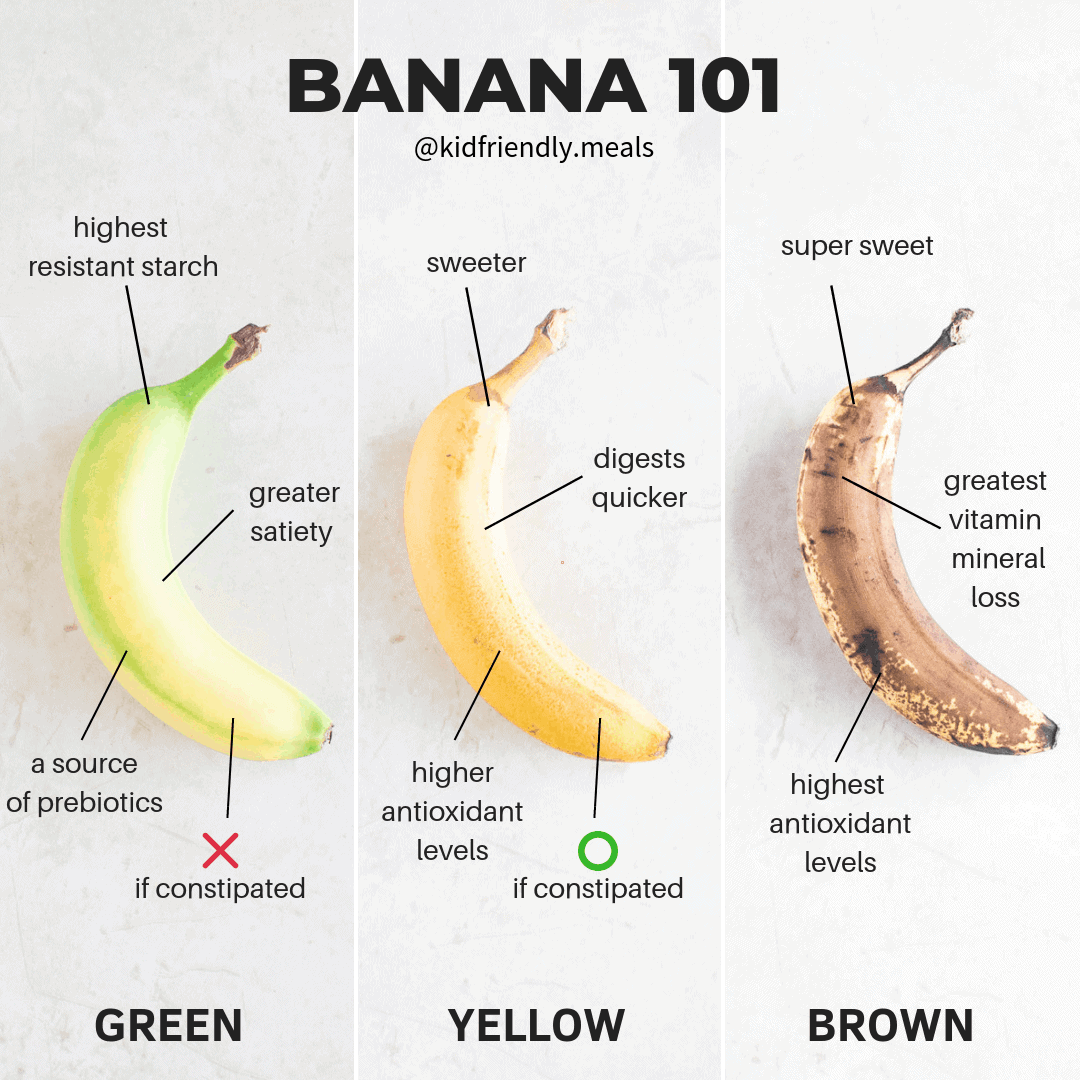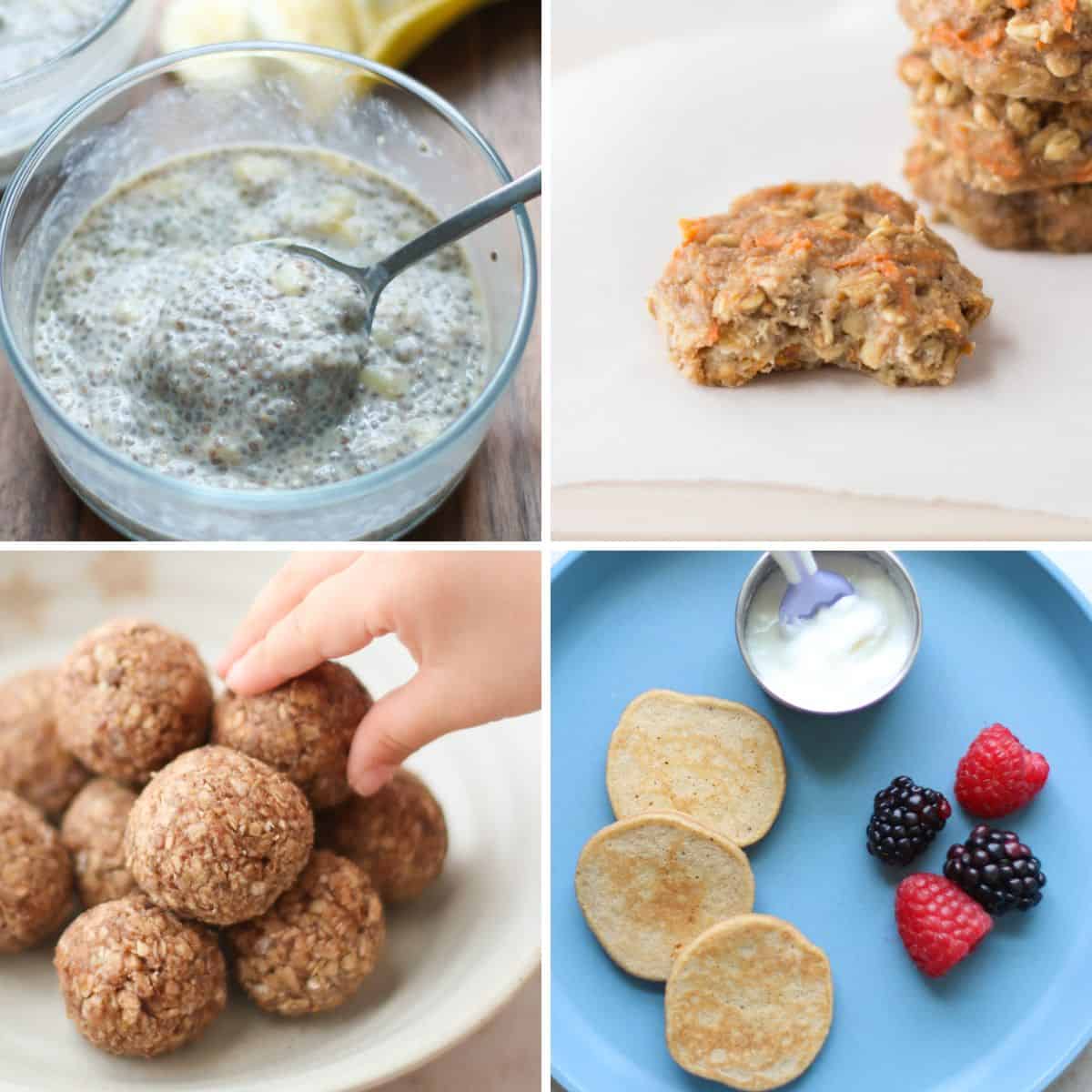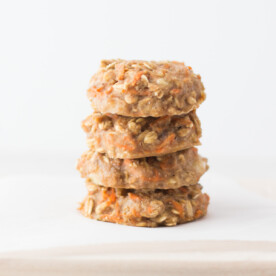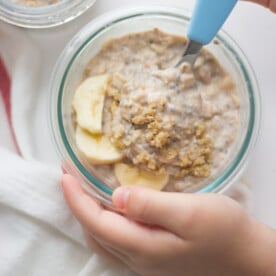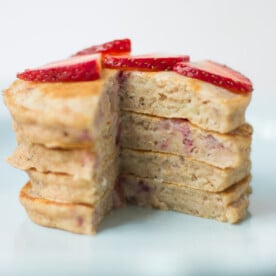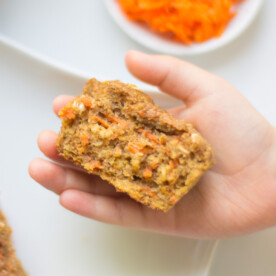When can babies eat banana?
Babies can be introduced to babies as soon as they’re ready to start solids, usually around 6 months. In fact, it’s the perfect first food. It’s important to remember that your baby is unique and that rather than going by the calendar, you need to make sure your baby is DEVELOPMENTALLY ready to start solids. If you’re unsure, be sure to grab this FREE handout!
Health Benefits
Bananas are a good source of so many important nutrients, including potassium, vitamin B6, vitamin C, and magnesium. All of these nutrients work together to strengthen the immune system, aid in muscle and bone development, and facilitate iron absorption. They also contain dietary fiber, which helps with digestion and promotes a healthy gut, and carbohydrates, which are the body’s primary source of energy. Therefore, eating a banana will give your baby a quick energy boost.
Are bananas safe for babies?
As long as the banana is soft and ripe and is served in an age-appropriate way as shown in this article, it is safe.
Bananas are not considered a highly allergenic food. However, some individuals may experience non-allergic reaction to bananas, such as oral allergy syndrome, which is a condition where the immune system negatively reacts to proteins in certain fruits and vegetables.
The symptoms include itching, swelling, and redness of the mouth and are usually mild and resolve within a few minutes to hours after the food is consumed.
Note that if your baby has FPIES (Food Protein-Induced Enterocolitis Syndrome), bananas can be a trigger food. They’re not among the most common trigger foods but it would be best to work with a healthcare provider or a registered dietitian to develop a diet plan that avoids trigger foods while still providing adequate nutrition.
Selecting the best banana
This infographic breaks down the main differences between each type of banana. The best banana for babies is one that is yellow with few brown spots. It will be soft, ripe, and has the perfect texture. On the other hand, overripe bananas will be too soft and slippery for your baby if serving as a finger food. You can certainly add it to various recipes as included below. Note that even though they have the highest antioxidant levels, overripe bananas also have the greatest vitamin and mineral loss. This is because as bananas ripen, enzymatic activity increases, which can cause some of the nutrients to break down. They’re also exposed to more air, light, and have been stored for longer than the other bananas.
How to Serve Banana for Baby Led Weaning
Banana is the perfect finger food for babies! Here are all the different ways to serve this nutritious fruit to your baby depending on their age. Note that your baby will gag quite a bit due to the soft and sticky nature of banana. However, this is a normal and expected part of learning to eat and is very different from choking. Here’s the ultimate guide to Baby Led Weaning
6+ month old
I know it sounds counterintuitive but bigger is better and safer at this age. Banana spears Slice the banana in half and insert your finger into the center of the fruit. You will end up with 3 spear-shaped pieces of banana. This method works better than slicing with a knife as the spears are less slippery. You can serve as is or roll in hemp seeds, ground flax seeds, ground nuts, infant cereal, coconut, etc. to make it less slippery and easier to grab. With Peel on It will create a handle that your baby can hold onto while they eat. Most definitely wash the peel. Mashed Preload onto a spoon or add to oatmeal, lentils, toast, or various recipes as included below.
9+ month old
Along with all the options above, you can start to offer bite-sized pieces.
Banana Combinations
You can also mash and combine with so many foods to boost nutrition, flavor, and variety! Some suggestions include:
Yogurt Baby oatmeal Thinned out peanut butter or nut or seed butter Spread onto toast (here’s an ultimate guide to best bread for babies) Chicken – finely minced, shredded, or pureed Scrambled eggs Lentils Quinoa Applesauce Mango Pear Beets Butternut squash Cauliflower Carrots Zucchini Sweet potatoes
Banana Recipes for Babies
Banana is one of the most versatile ingredient, and is a wonderful substitution for added sugars, which is recommended to avoid until 2 years of age. Here are some easy and delicious recipes to try! As you can see, I LOVE baking with banana! If you want to learn how to prepare other specific food(s), check out my How To Series!
